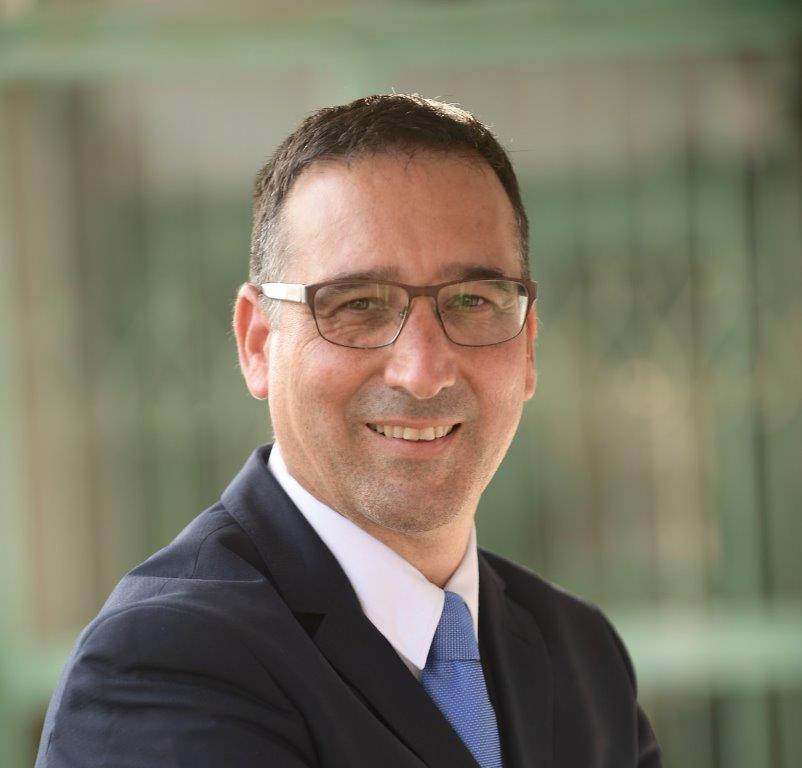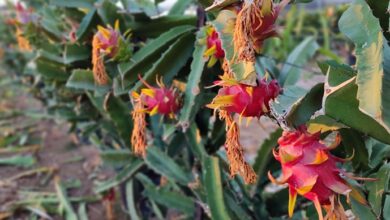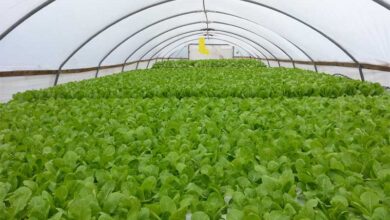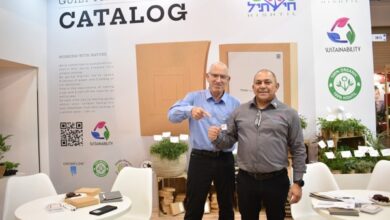In a world where the global economy and climate are dynamic, Agriculture is continually challenged to provide sufficient food, feed, fuel and fiber for the world’s population. Lately, extreme weather phenomena, the global pandemic and war in Europe are current crises, which Growers must cope with, around the world. This requires the various industries which serve Growers, such as Seeds and Irrigation, to provide solutions to these changing situations.
Accordingly, new developments, agility, and fresh thinking are decisively important for managing through the challenges presented. These topics arose in my conversation with Ofer Peleg, the new Deputy CEO at Hazera, whom I met with, to hear his insights about the new position and his view on how Hazera can help Growers globally to manage the challenges that farming faces.
Ofer recently began his position at Hazera after working for four years at Netafim as Vice-President, Global Supply Chain. In that role, he was exposed to the world of Agriculture, and he views his new position at Hazera as a good succession to his previous position. Ofer had also previously worked about 20 years in the pharmaceutical industry, most prominently at Teva Pharmaceuticals.
Hazera is a well-established global Israeli company. It has two headquarters, one in Israel and the second in the Netherlands, with 11 subsidiaries around the world. Hazera was acquired in 2008 by Groupe Limagrain. The integration greatly contributed to incorporating the know-how and capabilities of Limagrain, the world leader in vegetable seeds, yet to maintain an Israeli/Dutch spirit of the company.
“At the end of May this year, I assumed my position, and I am now in a stage of learning all the various aspects of the Seed business. Upon joining the company, in order to better manage the company’s activity, we announced a re-organization, placing the Commercial and Operational areas under my responsibility. The intention of this reorganization was to connect the front-end (Commercial) with the back-end (Production and Supply Chain) in a way that will enhance the delivery of quality and service to our Customers, and will also enable optimization and efficiencies.
Netafim and Hazera are two global companies with head offices in Israel, deeply connected to agriculture and to the soil. They share much in common, focusing on the needs of their Grower customers, and asking themselves how they can improve their efforts — Netafim through crop irrigation, and Hazera through crop performance, quality, and yield.
I am very attached to the DNA of Hazera, which is similar to Netafim: the love of agriculture, plants, and soil. I was also exposed there to concepts such as ‘seasonality’: necessary flexibility and responsiveness to varying needs. For example, there are significant variations in demand for different varieties according to climate change or geopolitical changes such as the war in Ukraine, resulting in essential changes in demand.
Another significant similarity is that the Irrigation and Seed Industries both refer their customers’ needs back to the organization in order to innovate, develop and provide them with creative solutions.
As a Seed company, Hazera is working in a strongly regulated business environment, and in that context, my past pharmaceutical experience proves valuable.
We are in an era of global warming. In your opinion, what are the actions that need to or can be taken in agriculture in this period?
“We focus on developing new vegetable varieties that can cope better with climate change, as well as diseases and pests. Everything is connected to genetics, and Hazera is a leader and expert in plant genetics.
Another aspect is the need to have genetics adapt to less populated geographies, where arable land is more available (for example, in Africa). We need to match the genetics and the ability to leverage resources in the best way for the agroclimatic conditions and the natural resources that are dispersed across the globe”.
World agriculture has been coping in recent years with more than just a few challenges. How do you think Hazera can contribute to farmers that are coping with lowered profits and with difficulty in recruiting workers?
“Growers’ expenses have risen continuously in recent years, but we believe that the premium our customers pay for quality seeds provides them “an added value”. I refer to good quality, high-performing varieties that will help growers to sell to major accounts and to gain their customers’ trust, and thereby, also to earn more income.
Furthermore, and no less important, our experts work directly with our Grower customers to understand their needs, to assist them in selecting varieties appropriate for their specific conditions, and to provide them with instructions and support during each crop cycle. Hazera’s involvement throughout the entire process, from the special connection with growers, the knowledge of the market, the deep relationship with marketers, and the understanding of the consumers, all delivered together, will enable us to create a model that will be beneficial for all. The strength of a broader enterprise, together with firm and stable anchors, will help Growers cope with the challenges you have mentioned.”
What sort of activity does Hazera conduct vis-à-vis small farmers in third-world areas?
“Hazera has a presence in Africa, which is experiencing growth and development in the agricultural sector. We work there with a variety of crops, primarily tomatoes, and onions, with an emphasis on increasing yields and improving resistance to plant diseases.
We also provide Growers with agronomic solutions. We don’t just sell seeds, but we walk hand in hand with our customers, by sharing the knowledge of how to reach results that will increase their income. In developing countries, the importance of attaining success is even more significant. Eventually, the combination of providing a quality variety with support for the grower all along the way is likely to be a critical factor that directly influences Growers’ ability to guarantee their children’s education – which is a tremendous responsibility!
In my opinion, in developing areas, there is great potential to combine additional companies and Israeli technologies as a broader agricultural concept – including precision irrigation, fertilizers, automated controls, etc. with the genetics that are most responsive to those technologies. Comprehensive views and approaches will be accepted gratefully in these areas that are thirsty for technology. With Israeli know-how and experience, there is much room for fantastic cooperation.”
Hazera can undoubtedly offer many solutions to the challenges that occur in global agriculture. Its R&D unit, together with the parent company, Limagrain, is developing vegetable varieties and technologies that provide a solution for constantly changing agricultural needs while being attentive to Growers’ needs and market requirements, as influenced by global economic and climate shifts. Emphasizing product quality and guiding the Grower along the way enhance higher quality crops and successful yields with increased income. The overview and broad perception of Hazera leave us feeling optimistic about the future of the Seed Industry in particular, and global agriculture in general.





